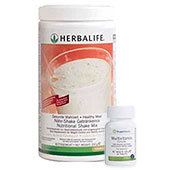What Can I Do to Stop Feeling Hungry All the Time Without Eating?
Stay Hydrated: Sometimes your body may be telling you it’s thirsty, not hungry. Try to drink a glass of water every 1-2 hours.
Eat Mindfully: Take your time eating a meal and be aware of how you feel. Stop when you’re satisfied, not stuffed.
Get Good Quality Sleep: When you don't get enough sleep, your body produces more of the hormone ghrelin, which increases appetite. Aim for 7-8 hours of sleep each night.
Engage in Stress Management: Chronic stress releases the stress hormone, cortisol, which can increase food cravings. Try exercises like deep breathing, yoga, or meditation to reduce stress.
Eat More Fiber: Foods rich in fiber, like fruits, vegetables, and whole grains, tend to make you feel full for longer.
Don't Skip Meals: Skipping meals may disrupt your body's metabolism, leading to food cravings later. Eat regular meals throughout the day.
Try Sugar-Free Gum or Mints: Chewing sugar-free gum or mints may help curb feelings of hunger.
Consult a Doctor: If feelings of hunger persist, it's best to consult a healthcare provider. They can assess your condition, such as thyroid or hormonal imbalances, that could impact hunger.
-
peptide and protein GI uptake
QuestionI am wondering whether peptide and protein supplements ca
-
6pm binge
QuestionDear Joe, Hello! I am a 23 year old female and recently
-
I need to gain weight ASAP
QuestionHi,I am 19 years old and whole my life I was pretty skinn
-
body fat or BMI--which should we track
QuestionI work in a setting where we often have weight loss group
-
alternatives to veggies?
QuestionHi I have IBS, and incidentally it is triggered by most v
-
lack of appetite
QuestionDear sir my girlfriend is a normal girl but she has a pro
- Nutrition Dieting
- Nutrition of German soccer team - can it be good for me too?
- Weight Loss Supplements based on Age and Gender
- Calories and fat in different kinds of popcorn
- Hello Sir,I am 26 years...
- Food Nutrition and Facts
- Coming to Senses
- Belly fat Q and A
- low sodium
- Vitamin B12?
- tea and nutrients



